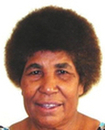Welcome to Department of Nursing

The PNG National Health Plan 2011–2020 directs the health sector improvement for the next ten years of this longer–term strategy and vision. The health of the people and health services are in crisis, and together as partners this plan commits us to strategies aimed at achieving our goal of: Strengthening primary health care for all, and improved service delivery for the rural majority and urban disadvantaged. In many ways, the state of our health system requires a ‘back to basics’ approach in the coming ten years. Strengthening our primary health care approach will be paramount in reversing this country’s deteriorating health indicators. It is essential that those at the front line of health service delivery are equipped with necessary facilities, supplies, equipment, and training. The health sector’s most important resource, the health sector work force, works under trying conditions
The training of nurses is essential to serve the needs of the nation to strengthen primary health care for all and improve service delivery particularly to the rural majority and urban disadvantaged. Following are developments in health care services that have led to the latest National Health Plan.
Prioritises the needs to improve child survival, improve maternal health, reduce the burden of communicable diseases, promote healthier lifestyles, and improve our preparedness for disease outbreaks and emerging population health threats.
Christian churches and the preparation of health workers
Papua New Guinea has had a diversity of training programs, starting with the arrival of Christian missions in the late 1800s and the informal training of health workers by missionaries. The preparation of health workers has continued with the emergence of independent churches, their health services and the education of health workers to provide services, particularly in the rural areas. Governments have consulted with the churches on the planning of training programs for the various cadres of health workers such as aid post orderly, maternal and child health nurse, certificate and registered nurses, community health worker and post graduate nursing programs.
Health and health services
In 1978 the World Health Organization (WHO) introduced the primary health care approach to health care delivery with the slogan “Health for All by the Year 2000” and this was incorporated into the government’s health plan 2001-2010. The traditional health services such as disease prevention, health promotion, maternal and child care and curative services were included in services but agriculture, food, industry, education, housing,
public works and communication sectors also needed to be involved. In 1998, the promotion of the Healthy Island concept encouraged people to take more responsibility for their own health.
The PNG National Health Plan (2001-2010) stressed that the health of the people, in particular women and children, was not improving. They were dying from easily preventable and treatable diseases. 15,000 babies less than one year old die each year and 3,700 mothers die each year from complications of childbirth (NHP 2001-2010 p. 3). The principles of primary health care and the Healthy Islands concept are excellent, but the evidence at the end of 2000 showed that the health of people in PNG had not improved, and, in fact had deteriorated. Other problems according to the NHP 2001-2010 were limited resources and inefficient management; inadequate accessibility to basic health services; poor community support for health services; and lack of encouragement and assistance in health maintenance and improvement.
In light of the above, the Ministry of Health (NHP p. 9) set a goal to improve health for all Papua New Guineans through development of a health system that is responsive, effective, affordable, acceptable and accessible to the majority of the people. The challenge is to empower individuals, family and communities to take responsibility for their health and involve all levels of government and other partners to work together as a nation towards achieving the goal of the National Health plan. Nurses and Community Health Workers comprise the majority of health workers, with nurses having a major part in providing health services as well as in supervising community health workers. A Ministerial Advisory Committee outlined measures to address the problems of the health system including the following priorities (NHP, p. xii): to increase services to the rural majority; expand health promotion and preventive services; reorganise and restructure the national health system; develop staff professional, technical and management skills; upgrade and maintain investment in health infrastructure.
New approach and focus for nursing education
A new approach and focus for nursing education was introduced in the mid-1990s whereby nurse education programs were upgraded from certificate to diploma level and linked with universities. In the interests of quality assurance the Commission of Higher Education developed procedures by which institutions of higher learning, such as the nursing schools, could have their programs accredited by a university. There are nine accreditation standards, which in brief are: institutional integrity (having a public image of honesty and respectability); purpose (including vision and mission statements); governance and administration; educational programs; academic and non-academic staff (having policies, procedures and processes governing the recruitment, retention, promotion and retirement of staff who must be appropriately qualified for the positions they hold in the institution); learning resources (including library and ICT resources); student pastoral care services, sports and recreational facilities; physical facilities to support teaching and learning such as lecture rooms, laboratories, buildings, equipment and machinery as appropriate; financial resources (having sufficient assets and sources of funds to sustain the life of the institution. The institution submits documents or material evidence that is deemed relevant such as governance or policy handbooks, program handbooks and/or program specification documents.

